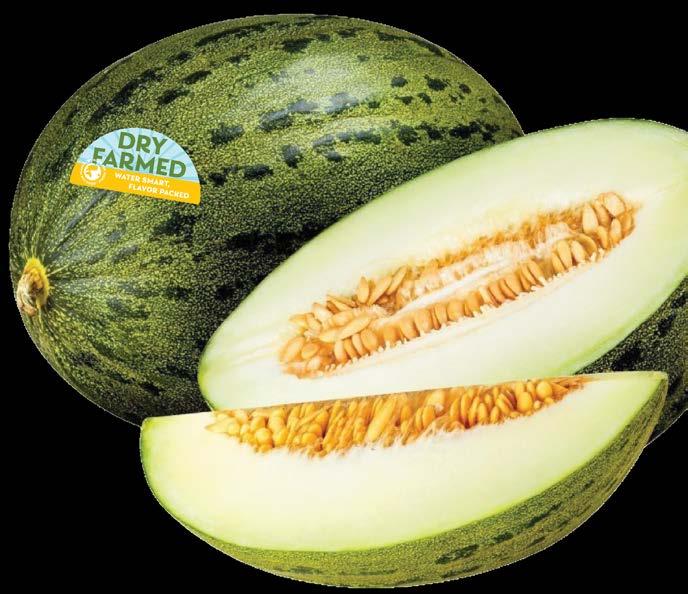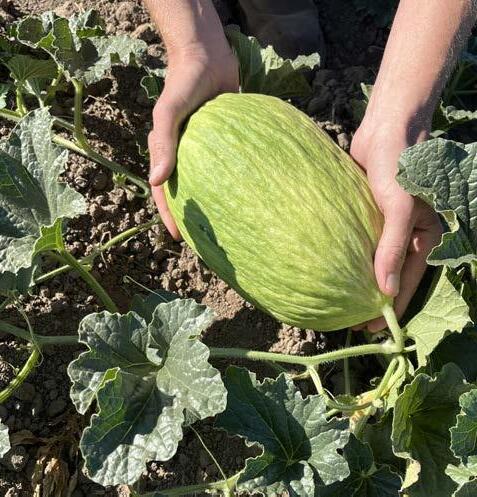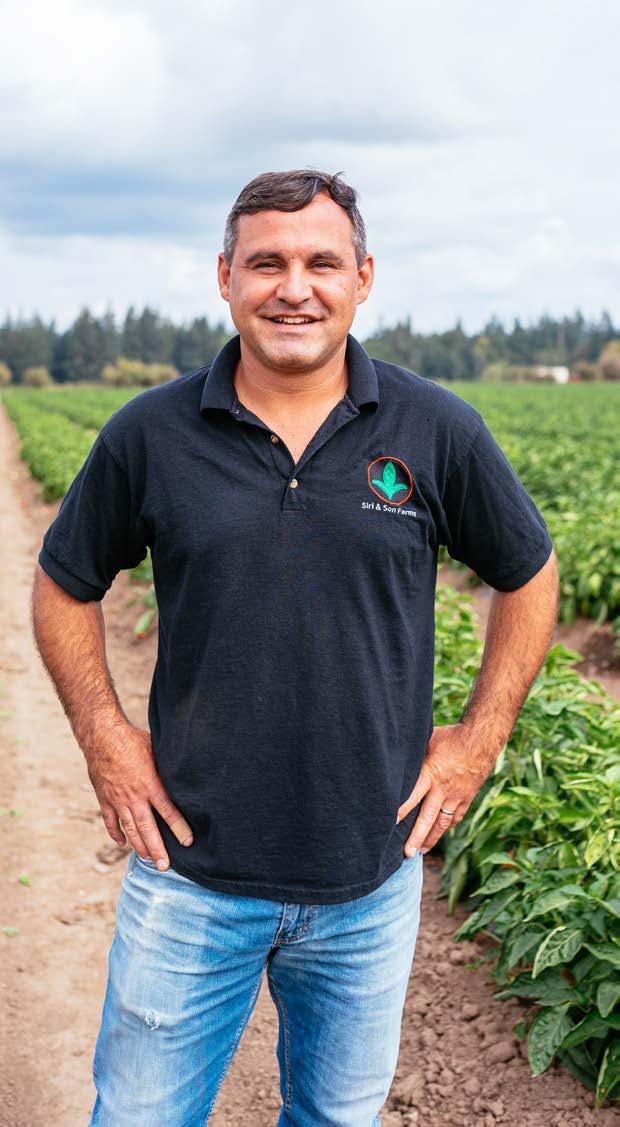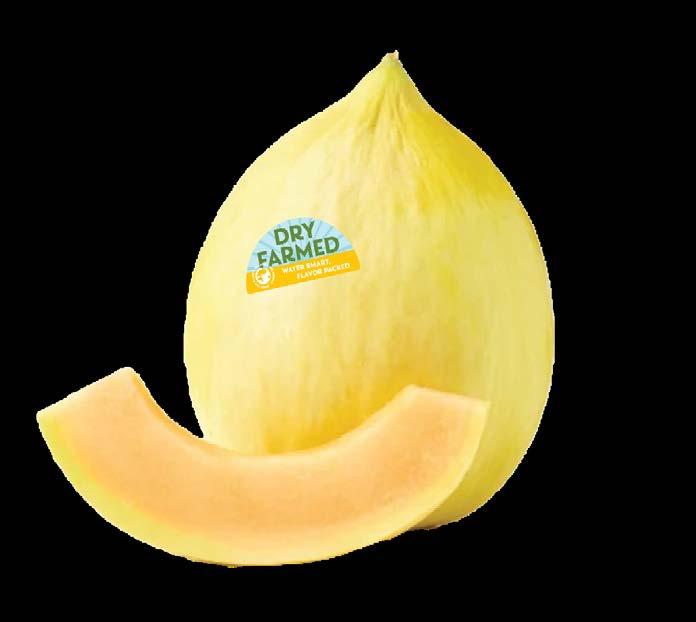
2 minute read
WATER SMART, FLAVOR PACKED
Dry Farm Melon Trial Underway with Siri & Son Farms
In the late summer of 2022, OGC coworkers met up with researchers and growers from Oregon State University’s Dry Farm Collaborative and Culinary Breeding Network to sample tomatoes and melons from dry farm trials.
The melons stole the show.
Sweet and rich in flavor with a depth and intensity that dry farming can create, our team left the tasting fired up and excited to find ways to bring these melons to market.
OGC was on the lookout for the right partner and contacted Joe Siri of Siri & Son Farms. It just so happened that he had a few acres of land in the Willamette Valley with no access to irrigation – a perfect fit.
“We leased a large parcel of land that had a few acres without water rights. With consideration of the neighbors, we had been growing cover crops to ensure we weren’t letting weeds impact their adjacent land,” Siri shares. “When OGC came up with the idea of growing dry farm melons, it was an ‘ah-ha’ moment for me.”
With a few acres of soil already in great shape, and a willingness to experiment, Siri & Son Farms agreed to take on a dry farm melon trial.
“The timing was perfect. The water in the soil was at the right depth, and we were able to get the seeds planted in the ideal window. We saw about 90% germination from those seeds, and we’re feeling confident about the success of the planting,” said Siri.
This initial trial includes organic dry-farmed Charentais, Crenshaw, Piel de Sapo, Sharlyn, and Sugar Cube melons.
Siri is hopeful about the melon trial - it has the potential to be a successful program for them, and a game-changer for underutilized land.
For OGC, it’s another exciting way to bolster our commitment to sustainability and help expand the reach of dry farming in Oregon and beyond.
Not to mention, if all goes as planned, these incredible dry farm melons will surely become a lot of eaters’ new favorites! Here’s to a greener, melon-filled future.
Want to know even more about our Dry Farm Melons?


Check out the Melon Magic page on our website

what is dry farming?
Requiring significantly less water, this growing practice uses soil amendments to help plants thrive on groundwater. Great for conserving resources, it also concentrates flavor in the fruit.
Dry farming is an approach to growing crops within the rain restraints of a given climate. By definition, dry farmed crops are irrigated once or not at all.
Indigenous Peoples and desert farmers worldwide have been using this method for ages. Now, growers responding to the impacts of climate change are exploring resilient farming methods that can adapt to ever- decreasing water access.
Dry farming requires thoughtful selection of ground that has water-holding properties and taking measures to conserve moisture during the growing season. Cover crops and mulching, and careful variety selection play an important role. Soil health and planting at just the right time are also critical for a successful harvest.
Not only a practice that helps farmers respond to climate change, dry farming can also solve issues for growing on land without access to irrigation that otherwise couldn’t support traditional growing methods.
With such concentrated flavor, dry farmed crops are celebrated by chefs and food lovers, and the method encourages adaptive breeding that can expand the variety of produce available in the market. A win-win for our planet and our taste buds.










